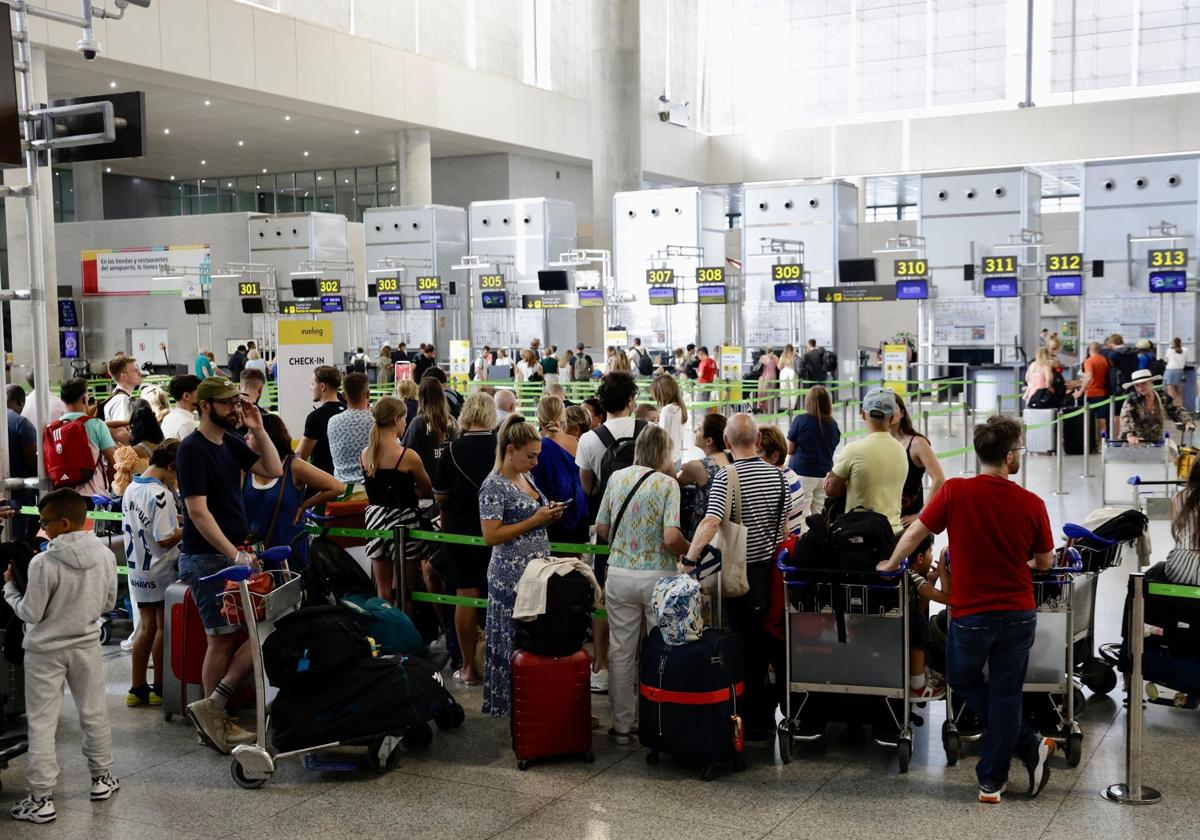Escalating conflict overseas creates midsummer uncertainty for Costa del Sol's tourism industry
Industry professionals warn that Spanish travel to the US will fall by 10% and that the ongoing sabre-rattling is cooling demand for the Middle East and Egypt
The shockwaves from the US bombing of three nuclear plants in Iran are being felt in the tourism sector, an industry that is highly sensitive to any event that generates instability. Although industry professionals agree that it is too early to assess the impact of this action, which is pushing the world toward the greatest escalation of war in 80 years, the truth is that this new international situation is adding to the uncertainty during the busiest months for what is the main industry across Andalucía and especially in Malaga.
After numerous conversations with tourism professionals, they agree that, after the US bombing of Iran, various scenarios are emerging that have yet to be finalised, given the short timeframe and the need to wait and see if the conflict escalates further. For instance, just last Monday Iran bombed US bases in Qatar. Travel agencies, hoteliers and many professionals linked to the industry are clear that what happened adds to and increases uncertainty, which is never the best travel companion. The sector is concerned, although to date there have been no cancellations.
Sergio García, head of Spain's association of travel agencies, provides the first estimates of the toll that this new situation could take on tourism. The data, released by the national trade association for this sector, points to a 10% drop in travel by people from Spain to the United States. This decline will be more pronounced, he asserts, in terms of the arrival of Americans to Spanish destinations, including Malaga, which has a direct flight to New York operated daily by United Airlines in recent months. "Before the bombing, just with President Trump's back-and-forth on the tariff issue, there was already talk of a 10% to 15% drop in travellers from the US to Europe. A figure that will now become more pressing and could worsen."
García also points to the immediate effects of the insecurity generated in the Middle East, predicting a slowdown in demand despite the fact that Malaga also has direct air connections to the capitals of Saudi Arabia and Qatar. He also stated that they have already shared their impressions with operators in the area of Egypt, a recovering market and direct competitor of Spain. They are now warning there that bookings will slow down again.
Another consequence feared by travel agents is that flight prices will increase if the Strait of Hormuz is closed, as more than 20% of the oil consumed by airlines in fuel is transported through that channel. "It's clear that tourism is the first thing to be affected," says García.
20.7
million overnight stays are expected in Andalusian hotels between July and September.
However, experience makes it clear that, with these types of conflicts and events that unleash a fear of travel and turn safety and security into key factors when deciding on a holiday destination, the Costa del Sol tends to come out on top." Industry experts and hotel managers consulted also point to the possibility that this new situation could turn Malaga province, as has happened on other occasions, into a "safe haven" destination for tourists who decide to change their travel plans.
In fact, the vice-president of Aehcos (the association of hotel business owners on the Costa del Sol), Javier Hernández, confirms that those who had planned to travel to Malaga's coastline are keeping to their bookings. He points to the closure of the Strait of Hormuz as the biggest concern right now, given the impact that this measure could have on rising oil prices.
Arturo Bernal, the Junta's regional minister for tourism, believes that this effect will be felt in the medium term, estimating that the increase in fuel prices is already predicted to be around 10% to 15% higher. However, looking ahead to summer, he is confident that "for those already coming with their holiday packages or with their services paid upfront, the impact will be less. From the third quarter onwards and towards the year end, we could see higher prices for services and transportation, especially due to the impact of this conflict."
Bernal also shares the thinking that tourists are focusing their attention on destinations that offer guarantees of safety and security. "The destinations that are institutionally safe and reliable are always in that position. Tourism is the industry of happiness but also of security and trust. We can never be grateful enough to our security forces for providing us with the security that is essential for any activity and especially for tourism," he said.
Nevertheless, because fear is rampant, what happened in the early hours of last Saturday morning may also have an impact on spending power because, according to some hotel managers, "more than one guest will think that unstable times are coming and that it's better to save than to spend, and travel is not a basic commodity." Even so, forecasts for the summer indicate that tourism will continue to grow, albeit at a slower pace than last year.
More tourists and bigger spenders
Still, Arturo Bernal predicts an "excellent summer for tourism." This Monday, in Cadiz province, he presented his forecasts for the high season, during which he expects more tourists with greater spending power. In his speech, he outlined the data that support this assertion and consolidate the strategy of growing more in revenue than in passenger arrivals. Specifically, the expected increase in visitor spending is double that of visitor arrivals during the busiest period of the year for the tourism industry.
Bernal announced that they expect to reach nine billion euros in revenue, 3.1% more than in the summer of 2024 and that they expect 12.8 million travellers to visit Andalusian destinations, which represents a growth of 1.5% over the previous year. He also noted that "we are maintaining our domestic market share with a total of 8.5 million tourists, up 0.5%, and we have increased our number of foreign visitors by 5% to 4.3 millions."
These figures have also boosted job creation that, in the most optimistic scenario, is estimated to reach 501,000 workers, meaning 6.4% more than in 2024. "Tourism always brings good news to Andalucía and, thanks to our commitment to a sustainable model, we are achieving good results measured in revenue and employment," stated Bernal.
In terms of hotel overnight stays, Bernal also reported record-high results, reaching 20.7 million stays, 2.7% more than in 2024, which is 600,000 more. Breaking it down by province, while Malaga remains the driving force of Andalusian tourism, statistics show that, after Huelva, it will experience the least growth with a 1.6% increase in hotel nights booked, surpassing 7.5 million stays.



Comentar es una ventaja exclusiva para registrados
¿Ya eres registrado?
Inicia sesiónNecesitas ser suscriptor para poder votar.